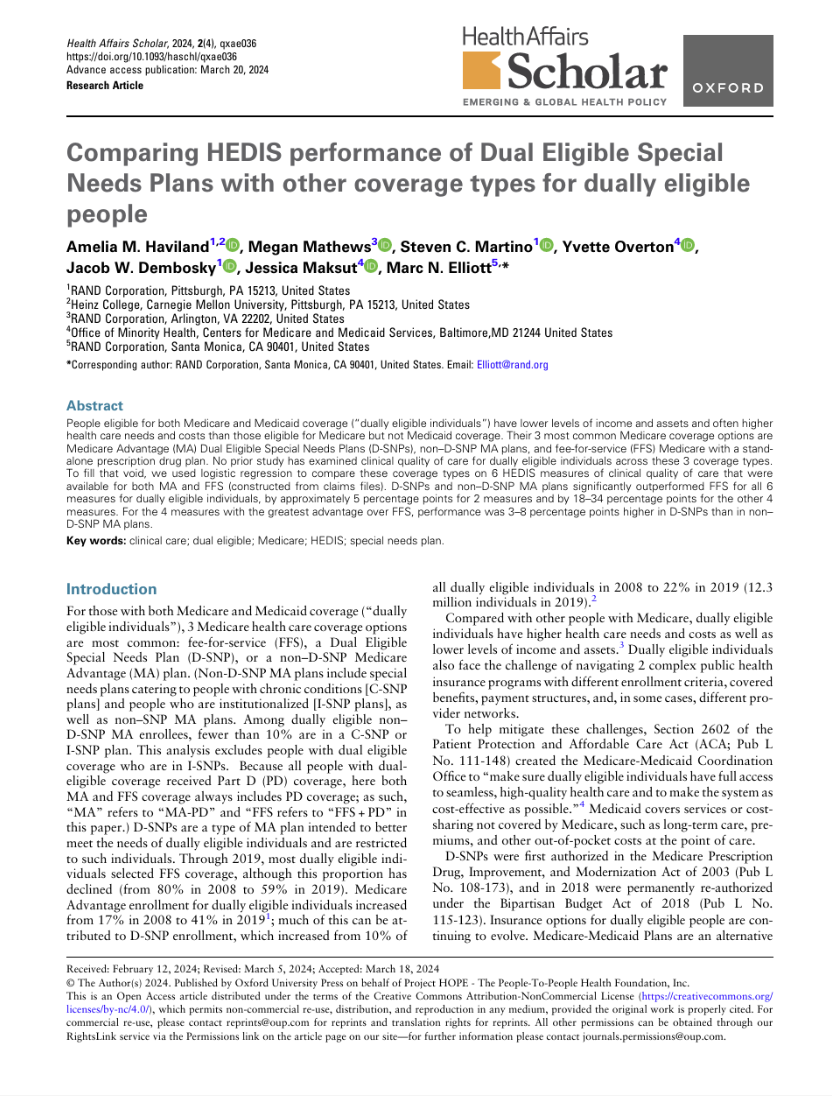Headline
Dual eligible special needs plan (D-SNP) enrollees had improved outcomes based on six HEDIS measures of care quality when compared to traditional Medicare enrollees.
Background
Dually eligible individuals typically have one of three Medicare coverage types: fee-for-service, also known as traditional Medicare, a Medicare Advantage plan, or a D-SNP, a type of Medicare Advantage plan that coordinates Medicare and Medicaid benefits. This study compared six HEDIS measures of care quality for individuals in each of these three types of coverage.
Findings
Medicare enrollees in D-SNPs had higher performance on all HEDIS quality measures than enrollees in traditional Medicare, as well as higher performance on most measures when compared to non-D-SNP Medicare Advantage plans.
Policy/Program Takeaways
This study strengthens the evidence base for the integration of Medicare and Medicaid coverage. Policymakers can use this study to promote integration options, like D-SNPs, which can help improve outcomes for people who are enrolled in traditional Medicare, which currently covers most dually eligible individuals.


